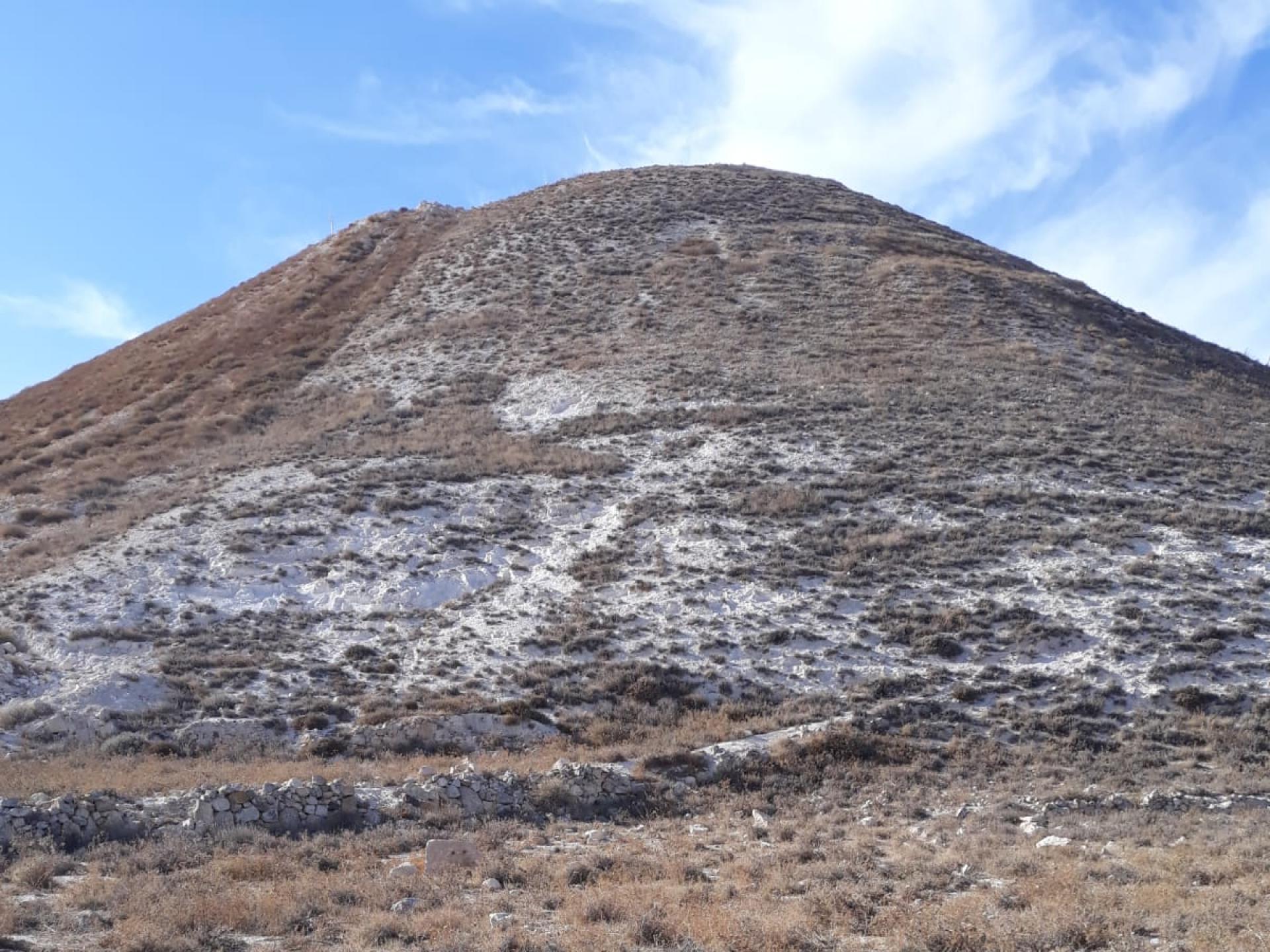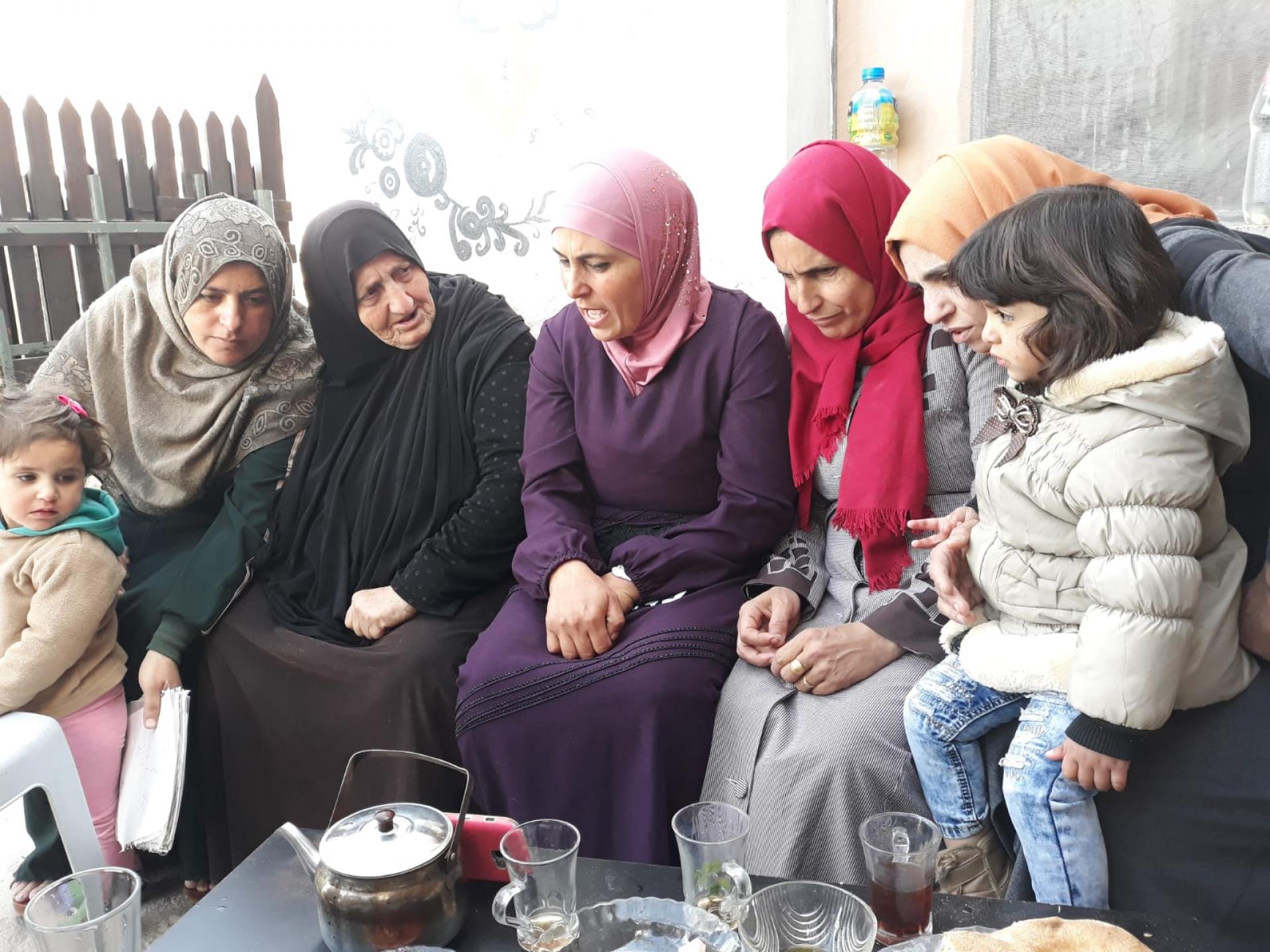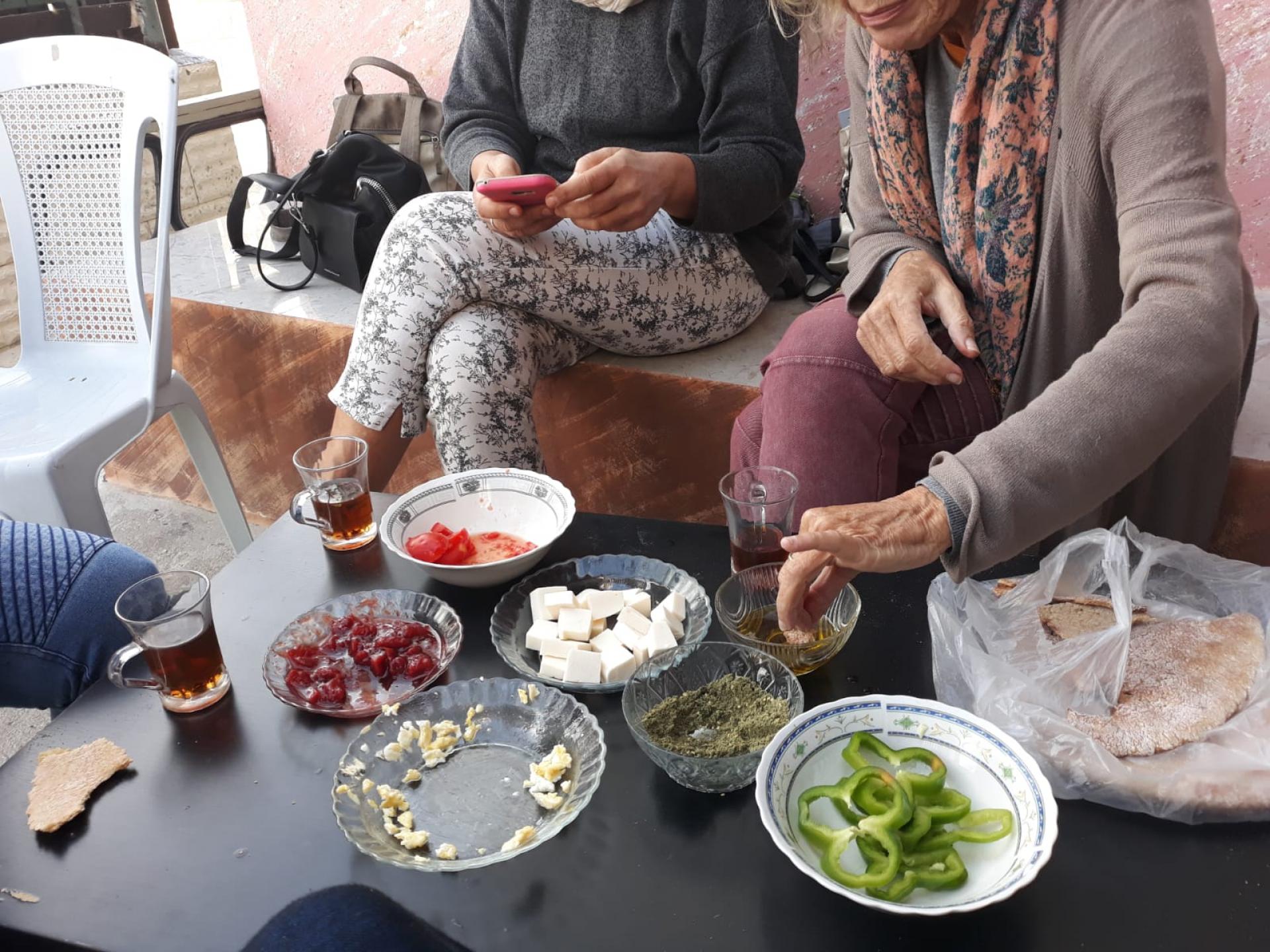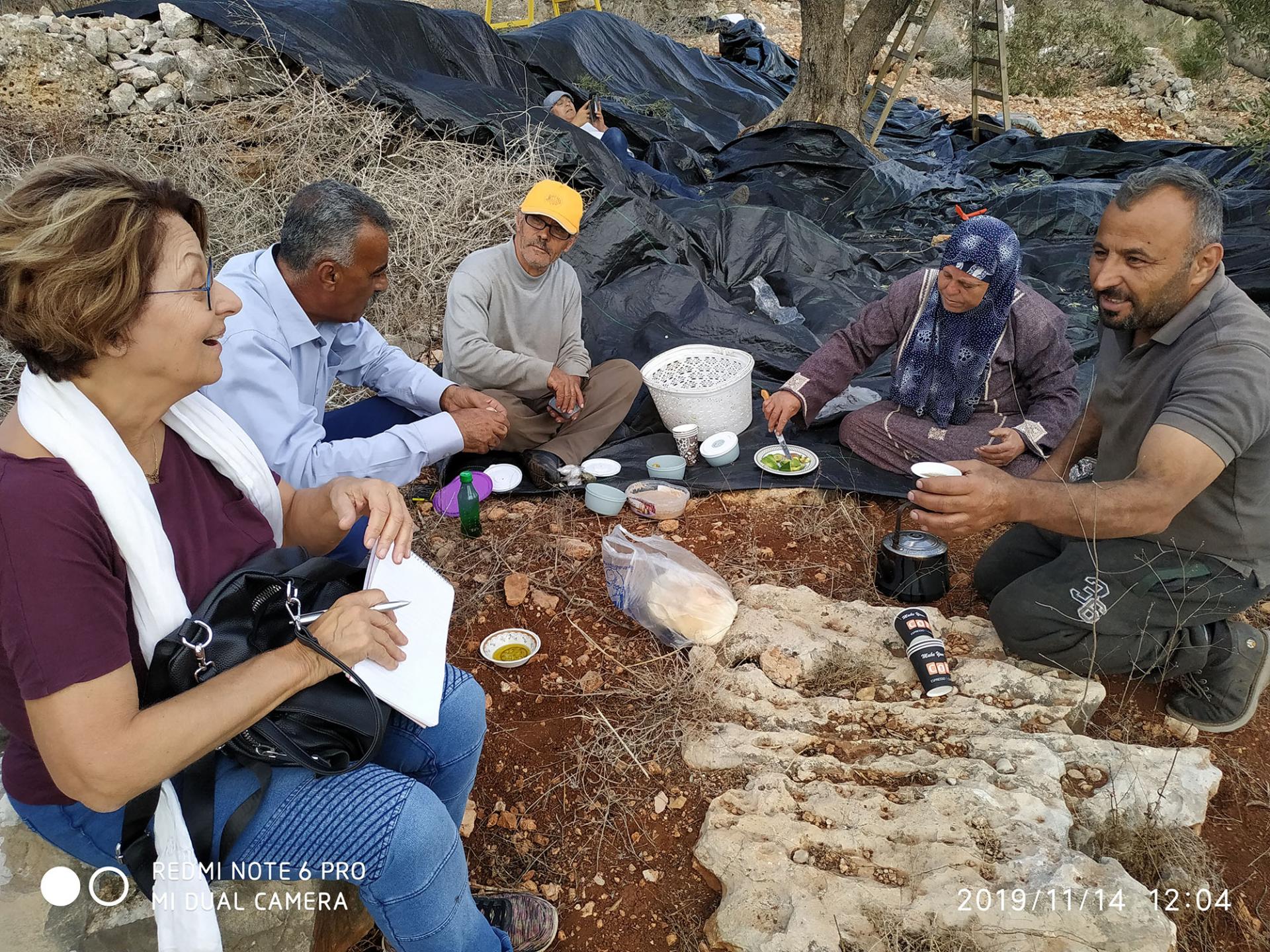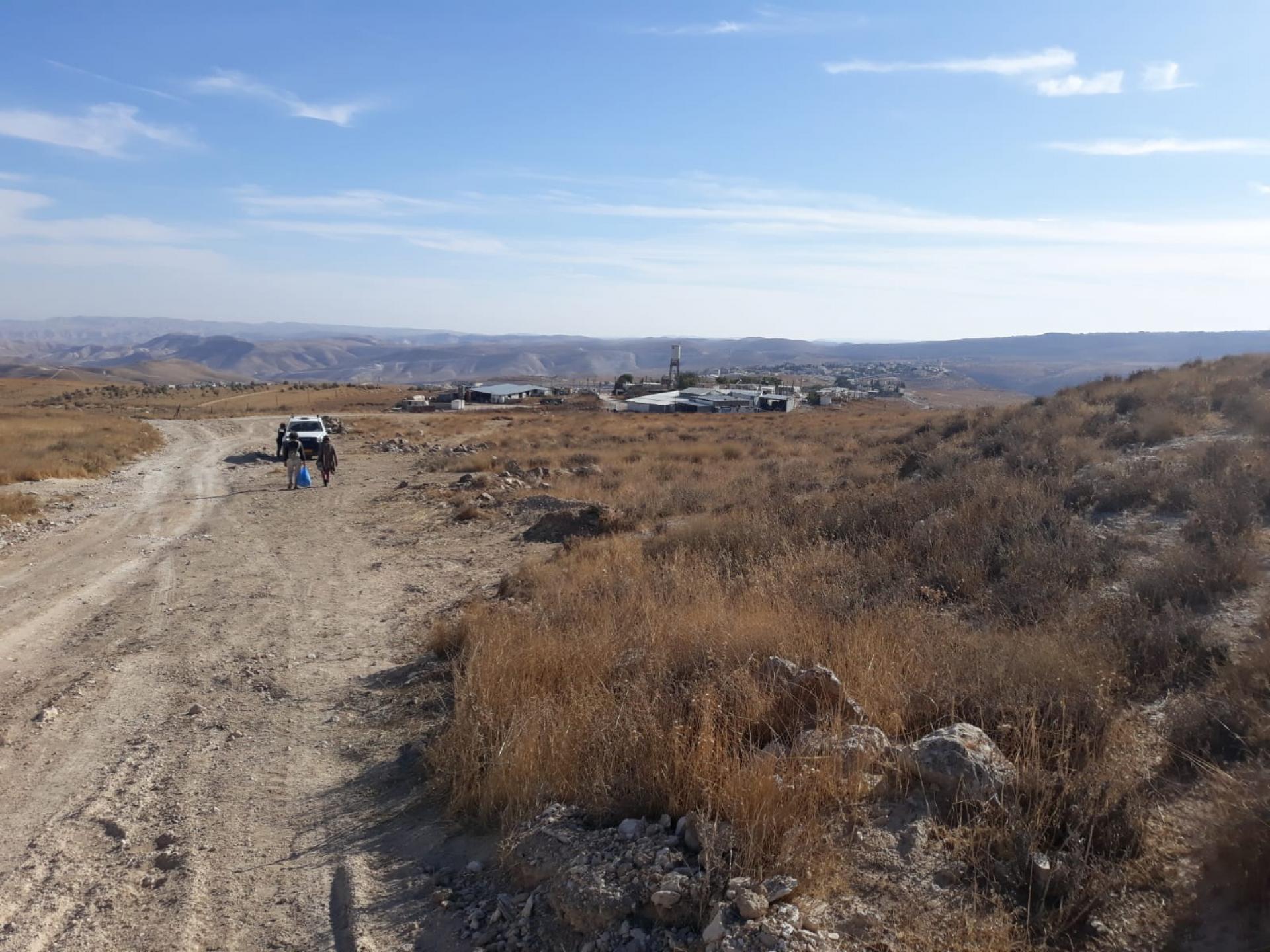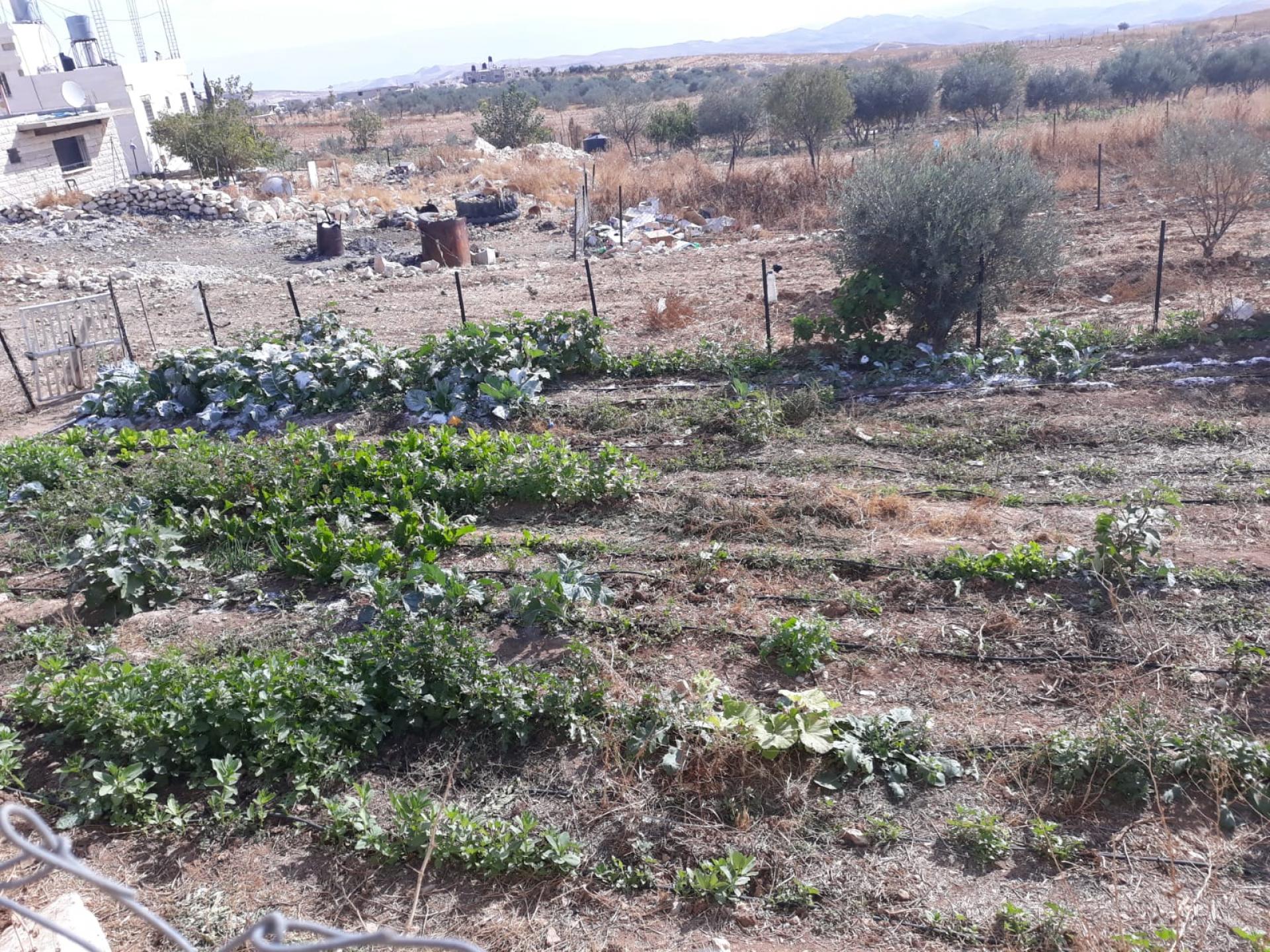Jubbet ad-Dhib - The wonderful women brought to their village electricity and running water and they’re not done yet
Visiting Jubbet ad-Dhib
“The audacity, stubbornness and creativity of Jubbet ad-Dhib’s women is evident everywhere you look. They succeeded where the men failed. They were able to obtain a paved road to the village, connect it to water and electricity, establish small businesses and along the way to heighten the residents’ self-confidence.”
That’s how Neta Ahituv opens her article about Jubbet ad-Dhib, which inspired us to make the acquaintance of these wonderful women who brought electricity and running water to their village, and they’re not done yet. We drove to the village located near Herodium. We got slightly lost but finally arrived. Of course, we’d made an appointment with one of the women who, as soon as we arrived, gave us a tour of the clinic and the solar panel farm established in November, 2016, with the aid of Comet Me (an Israeli-Palestinian organization that assists communities not connected to the electric grid and/or a central water supply to receive solar energy and clean water using environmental resources, and the Bimkom organization.
Here’s a link to Neta Ahituv’s article:
https://www.haaretz.co.il/magazine/.premium-MAGAZINE-1.7187898
The women recounted that about half a year after the panels were installed representatives of the military government arrived to confiscate them, claiming they hadn’t applied for a permit to install them. The government of Holland was angered, as were Comet Me staffers, and finally, after the Dutch government and the Palestinian Authority intervened, the panels were returned four months later. “Those were the worst four months of our lives,” one of the women said. “After we got used to electricity at home, it was terrible to lose it.”
The women also reported that there’s a shortage of water, particularly at the end of the summer, and it’s insufficient for the children’s showers and barely enough for cooking. A tankful of water costs NIS 500. The village homes are modest, the men work in Israel and are hardly around, so the burden falls on the women’s shoulders – education of the children and taking care of the household. The village contains 27 families, all from a single hamula. We sat on the porch of A.’s home together with a number of other women including Fadiya, who looks like a young woman but already has a granddaughter. She proudly displays photos as she describes her.
The women said they all came from outside the village. Some from nearby localities, like Za’atara which is a few dozen meters away, and some from more distant places such as Husan. All the daughters leave. They refuse to continue living here or to marry local residents, so they leave. Some go to nearby Za’atara and some even to East Jerusalem. The women complain they miss their daughters and grandchildren, and they can’t afford to visit them in their new locations. Some see their daughters and grandchildren primarily when they come to visit, two or three times a year. The village sons also have a housing problem. The military government doesn’t permit construction, so parents are separated from their married children, which saddens the women.
A. took us for a brief tour. We visited the organic vegetable garden which the women cultivate, saw chickens and ducks and a few olive trees at the edge of the village. A. said that they’re not allowed to harvest from olive trees on the slopes of Herodium that had belonged to her family. The spot was categorized as a “military area.” The nearby settlements (Sadeh Bar and Kfar Eldad) are “friendly” according to the security person we spoke to, but they’re nevertheless unable to harvest for security reasons. Although Palestinians work there in construction, the security considerations still hold. A. said that she and her husband tried this year to harvest their olives but were chased away. We immediately offered to go ourselves and pick the olives. She supplied us with sacks and a rake and we walked up the path to the ridge. Within five minutes a patrol vehicle arrived with a settler. We were open with him and said we’re helping the family pick their olives. He asked why they don’t coordinate with the DCL. When we’d asked A. the same question she said, “It’s my land; why must I coordinate with anyone?” But we tried nevertheless to convince her to coordinate. Apparently the issue of documents is sensitive and she refused to continue the discussion. When we told Yar (the person patrolling), he insisted that coordination is necessary. Meanwhile, a vigorous political discussion developed. We tried to figure him out, hear his opinions. He insisted that in the Gush Etzion region Jews and Arabs live together harmoniously (except for Bat Ayin). “We respect them, they work in the settlements.” We asked what he thinks about a situation of masters and slaves. He said he wished Israel would become an egalitarian country. “They should have rights, including the vote. Allow them to affect their lives.” Would you accept a Palestinian prime minister? “Definitely, on condition Jews can continue to live throughout the country, as equals. Their pay should be raised, they should receive National Insurance payments, health insurance, and the territory should be annexed to Israel.” And what about the lands you stole? “You’re talking about the past and I’m speaking of the future.” He’s unwilling to divide the land under any circumstances. “I can’t act against my interests.” He voted for Feiglin in the elections, even though he doesn’t agree with some of his views.
At the clinic we found women waiting to speak to the social worker from the Bet Sahur YMCA. She was accompanied by Irish volunteers who’d come to learn about the location and her work. They were curious about us and asked permission to photograph. We agreed and told them about Machsom Watch and the visits to the checkpoints, the agricultural gates and the villages. We also mentioned the Beach Days project, and even talked about arrests, particularly of children. They recorded us, photographed and we parted. The physician attends the clinic once a week.
and the villages. We also mentioned the Beach Days project, and even talked about arrests, particularly of children. They recorded us, photographed and we parted. The physician attends the clinic once a week.
A. invited us for breakfast that she prepared in a jiffy. Meanwhile, additional women had gathered, talking about their lives and families. Two older women – guiding tours for the many visitors to the village. The “Shinui” organization is involved in renovations of the old buildings. There’s a plan to establish a hostel for guests in one of the old buildings. At one point, after we’d listened and expressed our admiration for their activities, we told them about the Beach Days and their eyes immediately lit up. They’d never been to the sea, and they already had prepared a list and spoke excitedly among themselves. We explained the difficulties involved (such as the new regulation regarding magnetic ID cards, which are required in order to enter Israel). In the end, we said we’d look into the details when the date neared. Insh’allah they won’t need magnetic ID cards for a one-time trip.

